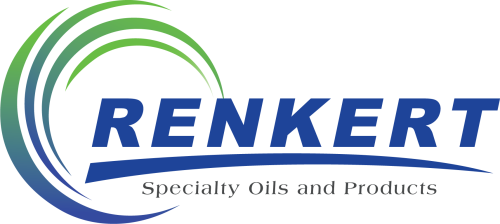Homebuilders depend upon a wide variety of quality rubber, TPE (thermoplastic elastomer – rubber-like plastic) and EPDM rubber products to reliably seal and insulate dwellings. Good process oils are essential to improving long-term product quality for the homeowner and production efficiency for your manufacturing operation.
According to major TPE producer Star Thermoplastics, the average person (actively) uses a TPE five times before lunch. Add passive uses to the list – genuine and synthetic rubbers working for a homeowner’s benefit without direct contact – and the central role of these products in daily life is clear.
A healthy home system depends on genuine and synthetic rubber products that reliably:
- Maintain shape (resist flex fatigue)
- Retain elasticity and flexibility
- Resist heat, UV light exposure and abrasion
- Maintain adhesion, where applicable
A process oil formulated for the manufacture of these products allows you to produce them faster and more efficiently. They minimize mixing time and heat, maximize the dispersion of components and optimize product volume without sacrificing reliability.
From the driveway and through the house to the roof, consider the products that contribute to the health of a home system and how quality process oil helps you deliver that system.
5 Parts of the Home that Depend on Quality Process Oil-Infused Rubbers
There are, of course, hundreds of rubber, TPE and EPDM (synthetic rubber) products in which process oils help produce ideal characteristics: softness, flexibility, insulating and weather-resisting properties. Many of these products are actively utilized in the home.
This article focuses on those passively utilized products homeowners likely don’t often see or think about, but are nonetheless essential for daily life.
1. Driveway: Polymer Modified Asphalt
Asphalt is a popular material among general contractors for driveway and walkway construction for its low cost (relative to concrete) and flexibility, making it less likely to crack than concrete.
The addition of rubber or polymers vastly improves the durability of asphalts and asphalt sealants to be comparable to concrete without losing elasticity.
What Matters to Consumers
The superior performance of polymer modified asphalt (PMA) makes it ideal for paving highways, jet runways and other heavy-traffic surfaces, as well as homeowners interested in long-lasting protection for their driveways.
The Role of Process Oils
PMA will lose its superior elasticity over time as the process oil used to produce it evaporates under exposure to UV light and heat. This is why utilizing a low-volatility process oil, such as from Chevron’s ParaLux line, is so important.
Volatility is the property at issue in automotive fogging. Just as oil evaporation leads to premature hardening and cracking of auto interior moldings, it reduces asphalt performance as well.
2. Doorways: Weatherstripping
Weatherproofing is an important part of ensuring the home is operating at peak energy efficiency. Quality materials help homeowners keep energy costs down.
Typically made from TPE/EPDM rubber, weatherstripping is a simple item to help new or remodeled homes retain cool air in summer and heated air in winter.
What Matters to Consumers
According to the National Association of Home Builders (NAHB), nine out of 10 people buying a home prefer a house with energy-efficient features over a cheaper, less efficient home. Clearly, the effectiveness and reliability of weatherproofing products is an important selling point.
The Role of Process Oils
Weatherstripping tapes are one of the most common types of insulation for doorways and windows. As in any rubber or synthetic rubber product, it’s important to use a process oil with low volatility in the production of the insulating material to maintain flex fatigue resistance.
Another important consideration in weatherstripping of any color besides black or brown is clarity and color stability. Your process oil should have high oxidation stability to maintain color consistency in production and avoid unattractive yellowing over time.
3. Kitchen & Bath: Plumbing
Bathtub plugs, toilet flappers, gaskets, faucet washers and gas piping are just a few examples of rubberized plastics utilized in household plumbing.
TPEs and EPDM rubber are both popular materials among plumbers, TPEs for greater design flexibility for specific applications and both for excellent heat and abrasion resistance.
What Matters to Consumers
Among plumbers, property managers and homeowners alike, abrasion resistance is likely the most important metric. Parts must hold up against general wear and water flow, especially hard water. A close second is resistance to oxidation. This will also cause rubber and TPE plumbing parts to degrade.
The Role of Process Oils
A process oil from the ParaLux or Renoil LV lines is useful in manufacturing these products to shape, strength and flexibility specs. In the case of TPEs, it aids in the remolding of excess material to minimize waste and contain manufacturing costs.
But it also supports long-term product quality for the consumer. The low volatility and low weight loss combined with high oxidation stability of these process oils, even in high heat, help fight degradation and minimize replacement frequency.
4. Appliances: Wire Insulation
Every modern home requires a variety of electrical and fiber optic wiring that needs to be reliably insulated and sufficiently flexible.
While PVC is the dominant material insulating most household wiring, EPDM rubber and TPE is increasingly being used to insulate appliance wiring.
What Matters to Consumers
Just as in plumbing applications, abrasion resistance is key. Synthetic rubber and TPE are excellent resistors of oxidation and heat. They are great dielectric insulators that are sufficiently flexible to suit a variety of electrical appliances.
The Role of Process Oils
Wiring insulation is only as effective as the uniformity of the coating. An inferior oil will evaporate prematurely, leaving insulation brittle and likely to crack, exposing the wire and exposing the home to fire risk. This process will only accelerate in high heat.
As noted above, quality process oil with low volatility will resist heat-induced evaporation, helping to maintain the flexibility and reliability of wire insulation for the life of the appliance.
5. Roof: Waterproofing Membranes
While pitched roofs can be made of wood, slate, metal or other typical shingle material and sufficiently protect the home from leaks, flat and very low-pitched roofs are another matter.
This style, popular among architects, presents the added challenge of requiring a more sophisticated roofing system. Builders often turn to the same waterproofing membranes made from EPDM rubber commonly used in commercial construction to provide added protection.
What Matters to Consumers
A good rubber membrane should reliably guide water to the drainage system and prevent leaks for at least 20 years. In addition, white membranes add the benefit of reducing solar heat absorption and reducing cooling costs.
Whether standard black or white, the membrane needs to stand up to the elements, including hard rain and UV light, as well as any other roofing system.
The Role of Process Oils
Low volatility is especially important in outdoor applications. Just as in polymer modified asphalt on the ground below, the process oil used in the production of roofing membranes must endure UV light exposure and resist oxidation to help maintain the compound’s integrity.
For white membranes, maintaining color stability to effectively prevent solar heat absorption is absolutely essential. This is only possible with a stable, UV-resistant process oils like ParaLux.
Your ability to extend product volume of rubber compounds with ParaLux oils also gives you a competitive advantage in the current market. Limited availability and dramatic increases in the cost of building supplies since the start of 2020 will be the new normal for the near future.
Explore Chevron ParaLux Process Oils from Renkert Oil
Home building products represent just a few of the many industries we serve as suppliers of quality process oil and experienced consultants in best practices for application.
Other products in and around the home for which we can support your manufacturing operations with ParaLux premium oils include, but aren’t limited to:
- Adhesives
- Carpet underlayment
- Coatings
- Footwear
- Furniture polish
- Sealants
- Textiles
With our logistics know-how, strategic locations and consultative approach, Renkert Oil is your best choice as a process oil supply partner.
Learn more about how we can help you improve product quality, operational efficiency and cost containment through best practices and application of quality process oils. We look forward to partnering with you!

